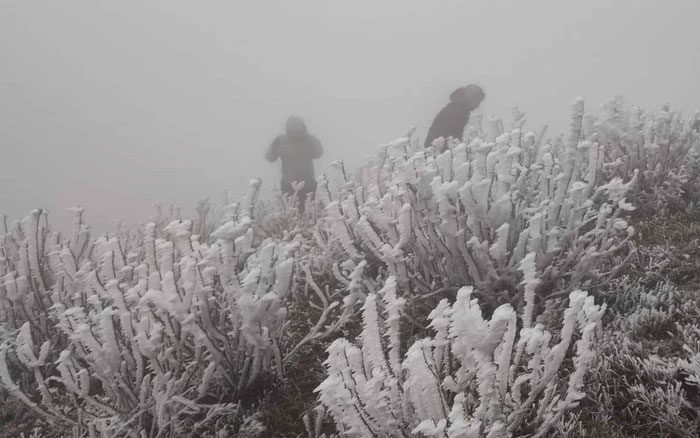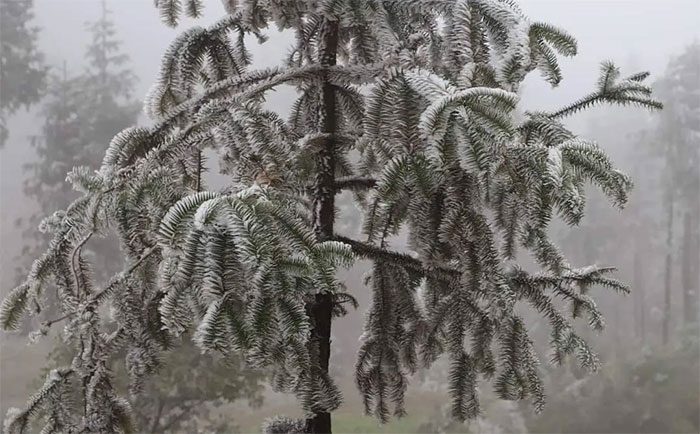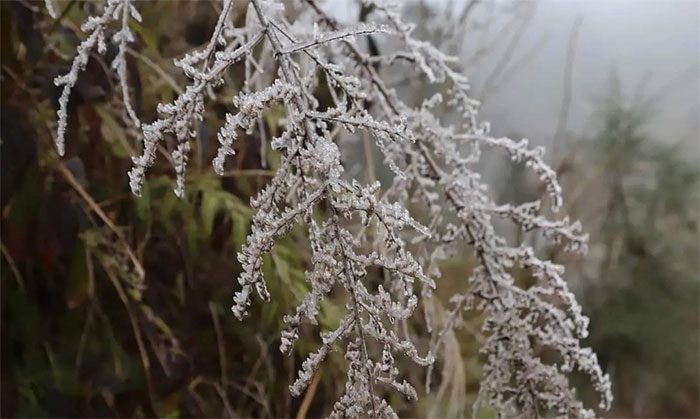Experts Warn: Certain Individuals Should Avoid Traveling to Extremely Low-Temperature Areas Due to Life-Threatening Risks
Severe cold waves are becoming increasingly common due to climate change. This can lead to acute health issues such as frostbite, hypothermia, pneumonia, and pharyngitis, as well as chronic diseases related to the respiratory and cardiovascular systems, with an increased risk of stroke and death.

Many people take advantage of the snow and ice in the high mountains for photos and check-ins.
Tourists from various regions across the country, where most people are not accustomed to extreme cold environments, may encounter health problems when seeking snow and ice. Exposure to extremely low temperatures can cause blood vessels to react abruptly, helping the body adapt.
Explaining the disease mechanism, Associate Professor Dr. Tran Thi Tuyet Hanh, a lecturer in Environmental Health at the Public Health University, stated that rapid temperature changes require the vascular system to reflexively adapt to these changes. In a cold environment, the body must generate heat to maintain a stable core temperature of about 37 degrees Celsius, which mobilizes sugars from the liver to produce energy.
Individuals with complications such as atherosclerosis and dyslipidemia may face severe risks in extremely cold conditions, as arteries supplying blood to the brain can become blocked, increasing peripheral resistance and raising the risk of rupturing blood vessels, strokes, and even death.
Additionally, children, the elderly, pregnant women, and individuals with other chronic illnesses are always at high risk of health impacts when exposed to harsh cold conditions.

Extremely cold weather affects blood vessel activity, leading to stroke risks. (Illustrative image).
“Snow and Ice Hunting” is Considered Very Risky. For individuals who are in good health and dress warmly, this can be an exciting experience. Associate Professor Dr. Tran Thi Tuyet Hanh emphasizes that not everyone who seeks snow and ice faces the risk of stroke or heart attack, but everyone should weigh their health status against the potential for thrilling experiences.
This expert advises that individuals with pre-existing conditions such as hypertension, diabetes, dyslipidemia, cardiovascular diseases, respiratory illnesses, the elderly, young children, and pregnant women should absolutely avoid participating (even if dressed warmly) due to health risks that could be life-threatening. If it is necessary to go outside in low temperatures, patients must keep warm, especially focusing on the head, neck, and extremities.
According to Associate Professor Dr. Tran Thi Tuyet Hanh, in many countries, participants in extreme sports are weighed, measured, and asked about their medical history to assess whether they meet health requirements. Even if individuals are eager to participate and willing to pay for tickets, they will be refused entry if their health is deemed inadequate.
According to the National Center for Hydro-Meteorological Forecasting, it is expected that the current intense cold wave will last until January 28. After this strong cold front in late January 2024, the cold air is predicted to be weaker than the historical average, thus lowering the likelihood of severe cold waves in February-March 2024 compared to the historical averages during the same period.


Images of frost in some mountainous areas of the North.
However, it is important to be cautious of strong cold waves, especially in February 2024, which may cause widespread severe cold and the risk of snow and ice in the high mountainous regions of Northern Vietnam.
Moreover, light rain and drizzle in the Northern region during the winter-spring of 2023-2024 are expected to occur more frequently than the historical average. Local authorities and residents should continue to maintain measures to prevent the cold and protect their health and that of their families.
- From now until Lunar New Year 2024, cold air will operate weaker than the historical average
- Causes of the record cold wave in the past 8 years, many areas experienced frost and snow
- Mau Son experiences frost for 3 consecutive days, creating a picturesque landscape like Europe
- Snow covers Dong Pagoda on Yen Tu Mountain


















































